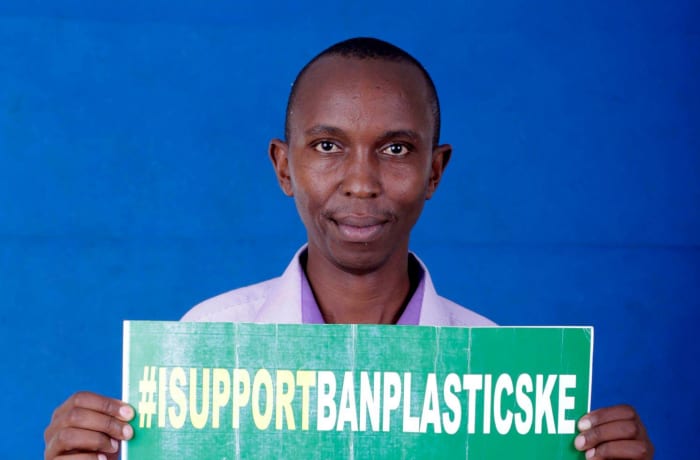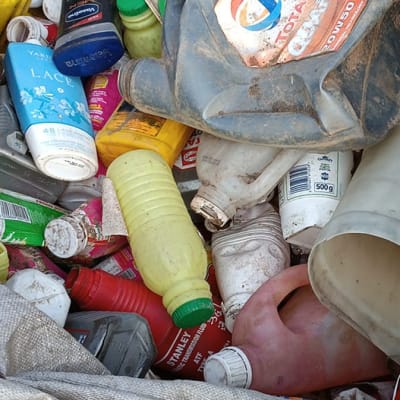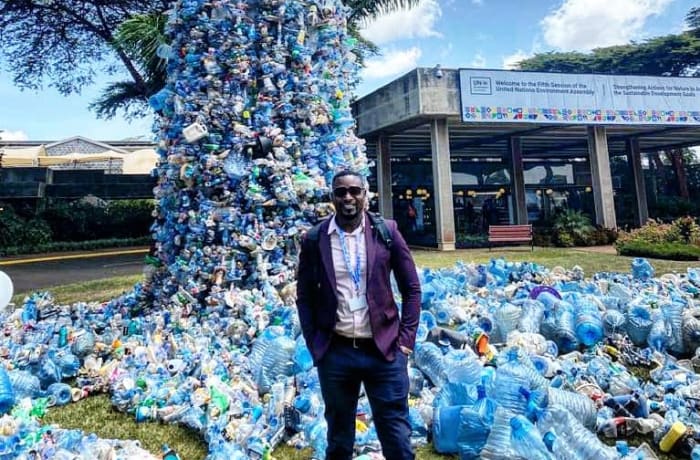
Centre 4 Zero Waste & Development in Africa
A non-profit organisation that has been actively engaging the general public, the private sector, organisations, policy makers and local government in sustainable zero waste strategies and climate solutions, urgently addressing the challenges that waste management systems in Africa face. Since its establishment, The Centre for Zero Waste and Development in Africa (CZWDA) has so far trained more than 1000 teachers, local governments, parliamentarians and community leaders in zero waste solutions and climate change. The organisation has further engaged about 120,000 pupils and students to be active environmental agents in their communities. Their CEO, Mr. Billy Lombe is a Member and on the African board for 'Global Alliance for Incinerator Alternatives' and 'Break free from plastic'. He is also a member of IPEN.
Contact info
+260965607960
Message business
Enquiries, questions, quotation requests etc
Enquire via Email
Enquire via WhatsApp
Zero waste advocacy
Since 2015, The Centre for Zero Waste & Development in Africa (CZWDA) has been implementing the kicking the bags out campaign to push for a total ban on single-use plastics in Zambia. This campaign is aimed at awareness-raising and engagement within communities, students, organisations, parliamentarians and government leaders to address the urgent need of putting in place a law on the ban of single use plastic bags in Zambia and the rest of Africa.
Addressing the urgent need of putting in place a law on the ban of single use plastic bags
Advocates local green jobs for women and youth
Engages communities, students, organisations, parliamentarians and government leaders




+6
Products and Packages
1-1 of 1 results
1

Centre 4 Zero Waste
Environment
Kicking the Bags Out Campaign
Centre 4 Zero Waste
Fight pollution, and get involved with the Kicking the Bags Out Campaign which addresses the creation of local and green jobs for Women & youth.
Climate change
With the master compost training programme, The Centre for Zero Waste & Development in Africa (CZWDA) aims to teach community members how to produce compost at the local community level in order to build healthy soils for gardens, conservation landscapes, and urban and rural farms.
Aimed at teaching community members how to produce compost
Focuses on building healthy soils for gardens, conservation landscapes, and urban and rural farms
Teaches communities proper composting methods to increase the amount of available compost




+8
Products and Packages
1-1 of 1 results
1

Centre 4 Zero Waste
Workshops & In-house training
Master Compost Training Program
Centre 4 Zero Waste
A train-the-trainer program in which graduates teach the community how to compost and about the benefits of amending soil with compost.
Policy and advocacy
Under the Sitifuna Ma plastics campaign (Sitifuna means ‘’We Don’t Want’’), The Centre for Zero Waste & Development in Africa (CZWDA) has made recommendations to the Zambia parliamentary caucus committee on conservation in March, 2019 at the WWF review workshop of the Statutory Instrument (SI) No 65 on the ban of 30 microns and below of single use plastics in Zambia.
Recommendations made on the ban of 30 microns and below of single use plastics
Reviews gaps in Zambia’s EPR Regulations Statutory Instrument
Successfully raises awareness on the dangers of single-use plastic bags




+5
Products and Packages
1-1 of 1 results
1

Centre 4 Zero Waste
Environmental consultants
Sitifuna Ma Plastics Campaign
Centre 4 Zero Waste
Sitifuna Ma plastics (‘’We Don’t Want’’ in Nyanja). This campaign tackles issues & challenges with the banning of single-use plastic in Zambia.
Skills training
The Centre for Zero Waste & Development in Africa (CZWDA) aims to empower women, youth and other citizens in innovative recycling skills and facilitate the creation of green jobs in waste management. At the same time, the organisation educates on reducing waste, re-using goods, composting and recycling of items, in an effort to improve total waste management and build sustainable and more resilient communities.
Empowering women, youth and other citizens in innovative recycling skills
Improving total waste management and building sustainable and more resilient communities
3000 people or groups such as waste pickers to benefit in the next 3 years




+14
Products and Packages
1-1 of 1 results
1

Centre 4 Zero Waste
Skills training
Zero Waste Skills Empowerment Initiative
Centre 4 Zero Waste
Gain firsthand experience and knowledge. This programme educates the community on the importance of recycling items, reusing goods and reducing waste.
Contact information
+260965607960
Message Centre 4 Zero Waste & Development in Africa
Enquiries, questions, quotation requests etc
Enquire via Email
Enquire via WhatsApp
Run a business in Zambia?
© 2021 Infobwana, Ltd. All rights reserved. Formally thebestofzambia.com · Learn more










